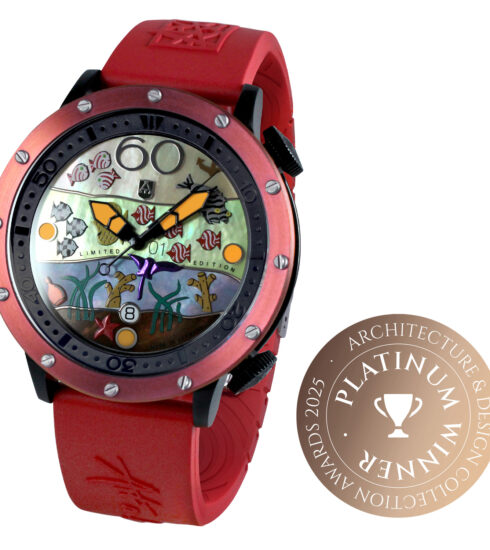Richemont reports profit jump – but the luxury goods industry cannot relax
Richemont reports profit jump – but the luxury goods industry cannot relax
The 2024/25 financial year, which ended on March 31, saw the luxury goods group achieve a 17 percent increase in profit to €2.75 billion. This was primarily driven by the strong performance of the jewelry segment.
Richemont also increased its revenue, by four percent to €21.4 billion. The revenue increase in the third quarter was even ten percent and in the fourth quarter eight percent (at current exchange rates).
To conclude from this that the luxury goods business is running smoothly again would be premature. Moreover, a look at the other major corporations reveals a mixed picture.
Luxury is in demand, but not smoothly.
Hermes recorded a sales increase of 8.5 percent in the first quarter of 2025, thus overtaking LVMHThe company suffered a three percent decline in sales during the same period. The parent company of Gucci Kering It was hit particularly hard, with a decline of 14 percent in the first three months of the current year. The drop in sales was just as steep last year for the [company name]. Swatch GroupThe company will not release new figures until after the first half of the year.
In general, the forecasts for the global luxury goods industry are not particularly rosy. The consulting firm Bain & Company recently predicted that sales of luxury goods will decline by two to five percent worldwide this year.
The company's report cites, among other things, statements by analysts indicating that many luxury brands used the surge in demand after the end of the pandemic to implement their largest price increases in years. According to a survey, this led many luxury consumers to hold back on purchasing new products last year.
Richemont, on the other hand, has refrained from price increases, emphasizes founder and Chairman of the Board Johann Rupert. "We are fair in our pricing." This will now benefit the company and ensure that customers remain loyal to the group's brands.
“Unlike some competitors, we did not use the post-corona boom to excessively increase prices.” As a result, customers have remained loyal to the company.
Johann Rupert
The watch segment is developing negatively
Looking at Richemont's latest financial figures, it becomes clear that the luxury goods business is not performing equally well for Richemont everywhere. This applies both to the type of product and to geography.
Richemont's jewelry segment, with brands such as Buccellati, Cartier, Van Cleef & Arpels and Vhernier, performed exceptionally well in the past financial year, with a sales increase of eight percent to €15.3 billion.
In the watch sector, however, things did not go well for the group. The nine Specialist Watchmakers brands (Cartier does not include Richemont) resulted in a significant revenue decline of 13 percent to €3.283 billion in the 2024/25 financial year.
Sales slump in China
Like all luxury companies, Richemont is also feeling the effects of the decline in demand in China. Together with Hong Kong and Macau, sales fell by 23 percent. However, this was offset by increased spending by mainland Chinese abroad.
“I expect China to return,” said Rupert at the announcement of the latest business figures. “When, I don’t know.” The Richemont CEO explained: “The Chinese have high savings, but are still feeling the effects of the pandemic.”
He added that he was glad to be working in the luxury goods sector and not in the industrial or technology sectors. These sectors, he said, had more to worry about, as the developments with electric cars demonstrate. "When I look at China, I'm glad we produce luxury goods and not cars," Rupert said.

“We are fortunate. The Chinese also love luxury – but so far they have not succeeded in penetrating a market dominated by centuries-old manufacturers,” he continued. This resilience will also help the luxury industry survive the current US tariff strategy, even though it is impossible to know what the situation in the US will be in six months.
Positive developments outside of China
However, over the course of the year, most other regions grew by double digits at both current and constant exchange rates, more than compensating for the decline in the Asia-Pacific region, Richemont reports.
Remarkable growth rates were recorded in Europe (+10 %), America (+16 %), Japan (+25 %) and the Middle East and Africa (each +15 %) (at current exchange rates).
The dealer network will not be further reduced.
Richemont had massively reduced its network of independent retailers in recent years, so that now 76 percent of sales are generated in its own stores or via its own online channels.
This share should not increase further, according to Johann Rupert. "We are well positioned – there is no need for a new wave of expansion." Moreover, Richemont CEO Nicolas Bos indicated that the company might intensify its cooperation with jewelers again.






